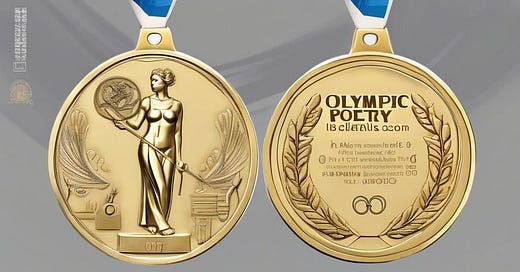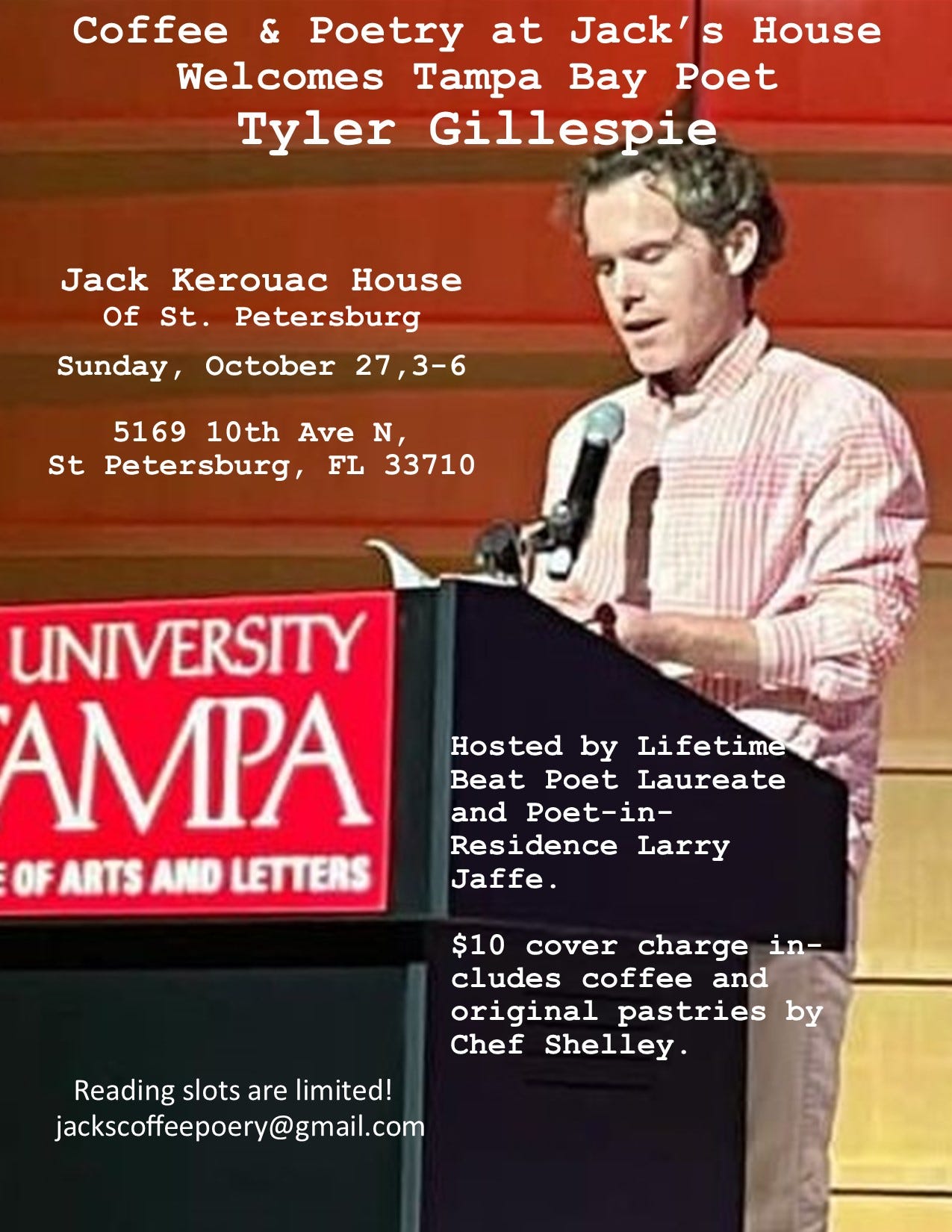Did you know that poetry was once an Olympic sport?
The Forgotten Olympic Art: When Poets Competed for Gold
Editors Note:
Wow, this is so cool. Poetry used to be in the Olympics from 1912 to 1948. That is so cool. I’ve put together an article about it, and it’s history and how it came to be. Tyler Gillespie will be at Jack’s House on Sunday. You don’t want to miss this amazing poet!
Be there or Be square!
Lots of Love,
Larry
Imagine winning an Olympic gold medal not for running or swimming, but for writing a poem. This wasn't a fantasy - it was reality from 1912 to 1948, thanks to the vision of Pierre de Coubertin, the founder of the modern Olympics. He envisioned more than just athletic competition—he dreamed of celebrating the Renaissance ideal of the complete human being, skilled in both physical and artistic pursuits. This vision perfectly aligned with the spirit of the age, as Europe experienced a remarkable fusion of classical revival and modernist innovation.
Cultural Context
The early 1900s witnessed a remarkable convergence of artistic and athletic ideals. The Art Nouveau movement celebrated the beauty of athletic forms in its flowing designs, while modernist poets like Ezra Pound were crafting verses inspired by movement and physical dynamism. Across Europe, physical culture movements promoted the classical Greek vision of unity between bodily and spiritual perfection. In the aftermath of World War I, these competitions took on additional significance as venues for international cultural exchange.
The Stockholm Debut
The 1912 Stockholm Olympics marked a revolutionary moment in sports history. While the games introduced electronic timing devices and welcomed athletes from all five continents for the first time, the inclusion of fine arts competitions represented perhaps its most radical innovation.
Between the Wars
The interwar period saw the arts competitions reach their zenith. The 1924 Paris Olympics particularly emphasized the artistic component, reflecting France's cultural leadership of the era. By the 1936 Berlin Olympics, both athletic and artistic competitions had become tools for national prestige and propaganda, reflecting the increasing political tensions of the time.
Social Impact and Cultural Exchange
The poetry competitions proved groundbreaking in unexpected ways. Women found opportunities to compete in the arts categories long before they gained equal representation in athletics. The competitions also provided neutral ground for cultural exchange during politically charged periods, serving as one of the world's first truly global literary competitions.
The Post-War Transformation
The cultural landscape had transformed dramatically by the end of World War II. The rise of mass media was revolutionizing both sports and arts, while increasing commercial opportunities for professional artists challenged the amateur ideal that had initially united athletes and artists. As the Cold War began casting its shadow over international competitions, the original vision of Olympic arts competitions seemed increasingly out of step with the times.
The Modern Legacy
Though the poetry competitions ended in 1948, their influence endured in surprising ways. Many nations maintained their own sports poetry traditions, while the Olympics preserved artistic expression through its Cultural Olympiad. Perhaps most significantly, these competitions helped establish sports poetry as its own literary genre, one that continues to explore the intersection of physical achievement and artistic expression.
Broader Historical Significance
The Olympic poetry competitions represent more than just an interesting historical footnote—they embody a unique moment in cultural history. This was a time when international competition was viewed as a path to world peace, when amateur status carried profound moral significance in both sports and arts, and when Western civilization made its last great attempt to recreate classical Greek ideals of human achievement.
This remarkable experiment in combining arts and athletics reflects a lost world of cultural optimism—an era when people believed competition could be elevated to an art form, and art could be judged as objectively as sport. While the poetry competitions themselves are now largely forgotten, they remind us of a time when the Olympics aspired to celebrate not just the achievements of the body, but the full range of human creative potential.
JACK KEROUAC HOUSE OF ST. PETE FEATURES TYPLER GILLESPIE!
The House that Jack Built is pleased to once again feature one of Tampa Bay's finest poets, Tyler Gillespie! There will be a $10 Cover Charge featuring baked goods from Chef Shelley. And of course our incredible Open Mic!
You can get your tickets now:
Tyler's Bio
Tyler Gillespie is the author of the nonfiction collection The Thing about Florida: Exploring a Misunderstood State (University Press of Florida, 2021) and two poetry collections — the nature machine! (Autofocus, 2023) and Florida Man: Poems, Revisited (Burrow Press, 2024).






